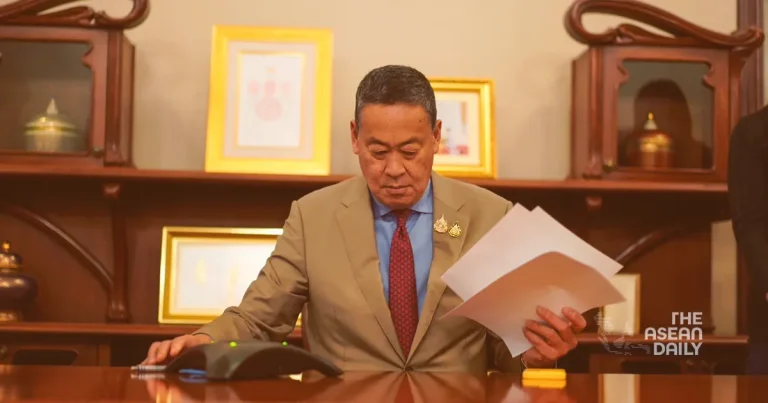11-7-2024 (BANGKOK) The Constitutional Court of Thailand has announced a delay in its decision regarding the potential dismissal of Prime Minister Srettha Thavisin, setting 24 July as the next hearing date. This development comes as the court seeks additional evidence in the high-profile case that has gripped the nation’s political landscape.
In a statement released on Wednesday, the court explained, “We are calling for more information, including evidence and testimonies from previously summoned individuals.” This request for further documentation suggests the complexity of the case and the court’s commitment to a thorough examination of all relevant factors.
The legal challenge against Prime Minister Srettha originated from a complaint lodged by 40 military-appointed senators in May. The crux of the case revolves around the cabinet appointment of Pichit Chuenban, a lawyer with a controversial past. Pichit, who had previously served a jail term for contempt of court, is alleged to have fallen short of the moral and ethical standards required for ministerial positions as outlined in the Thai constitution.
The case has raised eyebrows due to Pichit’s connections to former Prime Minister Thaksin Shinawatra. Pichit served as Thaksin’s legal representative during the infamous “lunchbox cash” scandal, which saw him attempt to bribe Supreme Court officials with 2 million baht concealed in a paper bag within a lunchbox. This incident, occurring in 2008, resulted in a six-month prison sentence for Pichit and two colleagues.
Prime Minister Srettha, who entered politics as a newcomer, has consistently denied any wrongdoing in the appointment. However, Pichit has since resigned from his cabinet position in light of the controversy.
The potential implications of this case are far-reaching. If the court rules against Srettha, resulting in his removal from office, it would necessitate the formation of a new government. In such a scenario, the ruling Pheu Thai party would need to propose a new candidate for the premiership, subject to a parliamentary vote.
Adding to the political uncertainty, this case is running parallel to another significant legal challenge calling for the dissolution of the opposition Move Forward Party. Move Forward, which emerged as the surprise victor in last year’s elections and currently holds the largest number of seats in parliament, was previously blocked from forming a government by the military-appointed Senate.
Political analysts suggest that these concurrent legal battles have intensified the atmosphere of political instability in Thailand. The outcomes of both cases could potentially reshape the country’s political landscape and have lasting implications for its democratic processes.




